Queen Elizabeth II: A Look at Her LGBTQ+ Record
09/08/22
trudestress
By continuing to use our site, you agree to our Privacy Policy and Terms of Use.
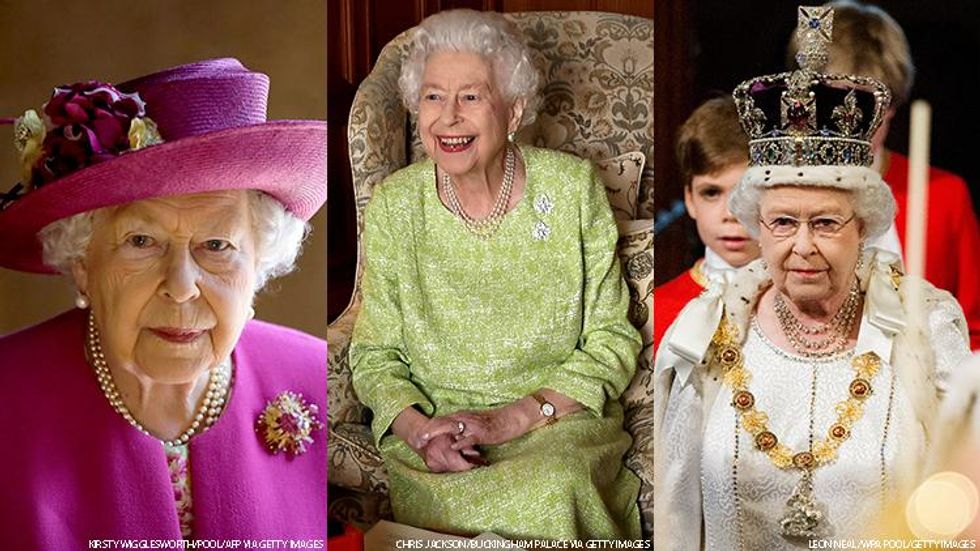
Queen Elizabeth II died September 8, 2022 at age 96. She was the longest-lived and longest-reigning British monarch. In June 2022 she observed her Platinum Jubilee, a celebration marking 70 years on the throne. Her Platinum Jubilee just happened to coincide with Pride Month.
While political power in the U.K., a constitutional monarchy, rests with Parliament and the prime minister, the monarch's duties do include speaking out on political matters in the nation and the world. Elizabeth, who became queen in 1952 upon the death of her father, King George VI, has publicly discussed LGBTQ+ rights several times in recent years and has been largely supportive.
Here's a look at her record.
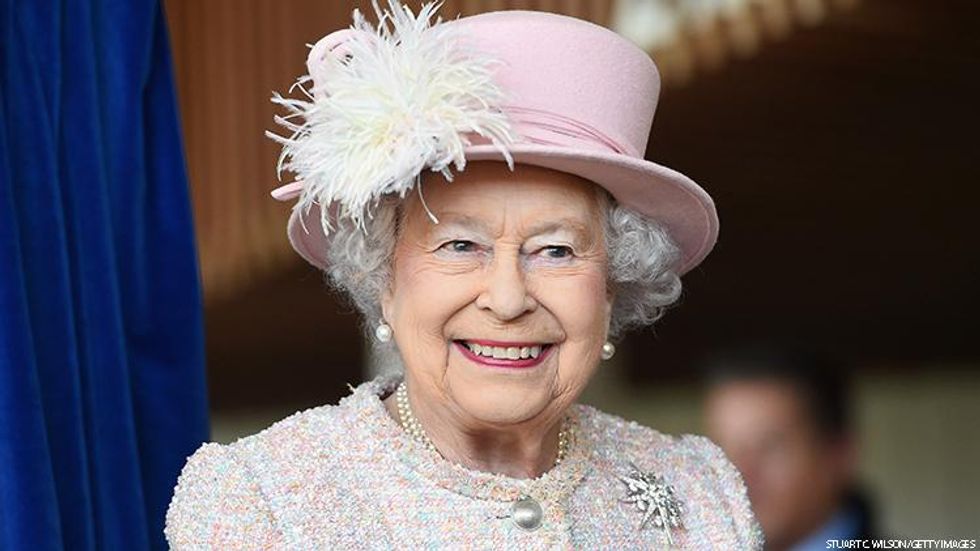
In 2013, the queen endorsed a new charter for the Commonwealth of Nations, a voluntary association of more than 50 nations that are mostly former British colonies, along with the U.K. itself, of which the U.K. monarch is the symbolic head. The charter stated, "We are implacably opposed to all form of discrimination. Whether rooted in gender, race, colour, creed, political belief or other grounds." The queen's endorsement had some people praising her as a progressive, but some activists questioned this because the wording did not specifically include LGBTQ+ people.
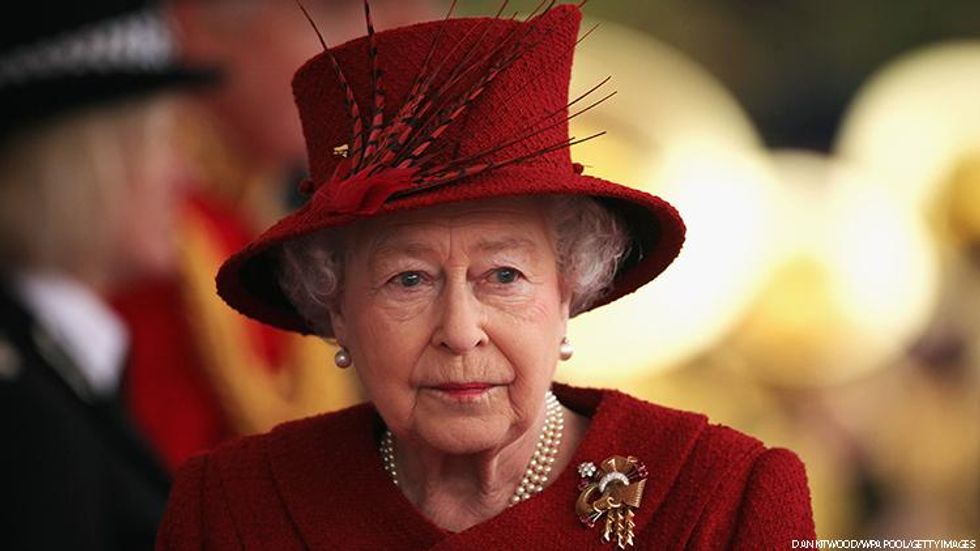
Also in 2013, the queen gave her blessing to legislation passed by Parliament legalizing same-sex marriage in England and Wales, a practice known as "royal assent." (Scotland and Northern Ireland, the other component countries of the U.K., have a degree of autonomy and adopted their own marriage equality laws later.) Three years later, the Daily Mail, a tabloid newspaper, published an article claiming the queen's assent was reluctant. The royal family was not amused, according to several sources, who said Elizabeth had not been reluctant at all. A source at Buckingham Palace called the Mail's story "spurious and unsubstantiated."
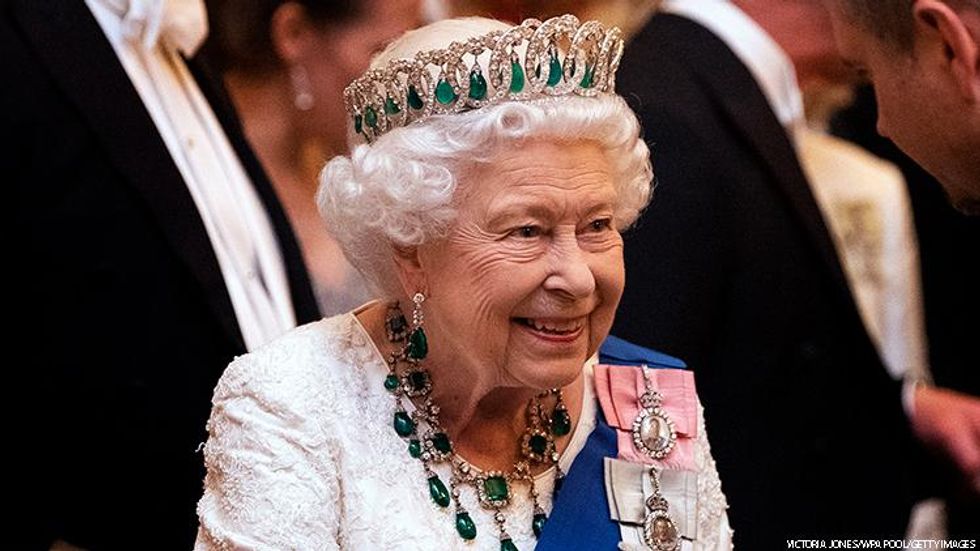
In her speech for the opening of Parliament in 2017, Queen Elizabeth made a clear call for protecting the U.K.'s gay citizens and a variety of other groups against discrimination. "My government will make further progress to tackle the gender pay gap and discrimination against people on the basis of their race, faith, gender, disability, or sexual orientation," she said. She received measured praise from LGBTQ+ activists, who were disappointed she didn't mention gender identity. "We were pleased to hear a clear acknowledgment that more must be done to tackle discrimination on the basis of sexual orientation in the next two years, alongside other forms of discrimination," said a statement from LGBTQ+ rights group Stonewall. "But we are very concerned no mention was made of tackling discrimination based on gender identity."

In a possible blot on the queen's LGBTQ+ record, gay royal attendant Ollie Roberts (right) resigned his position in 2018 after just a few months -- and after a demotion for the stated reason of "courting publicity." He held the job of footman, where his duties included accompanying the queen on formal occasions and riding with her in carriages, in addition to domestic responsibilities like walking her dogs and collecting her mail. He was the first out gay man to hold such a post. Some activists said he wasn't a publicity-seeker and that his demotion and resignation indicated a culture of homophobia at Buckingham Palace. The royal family, however, had no comment.
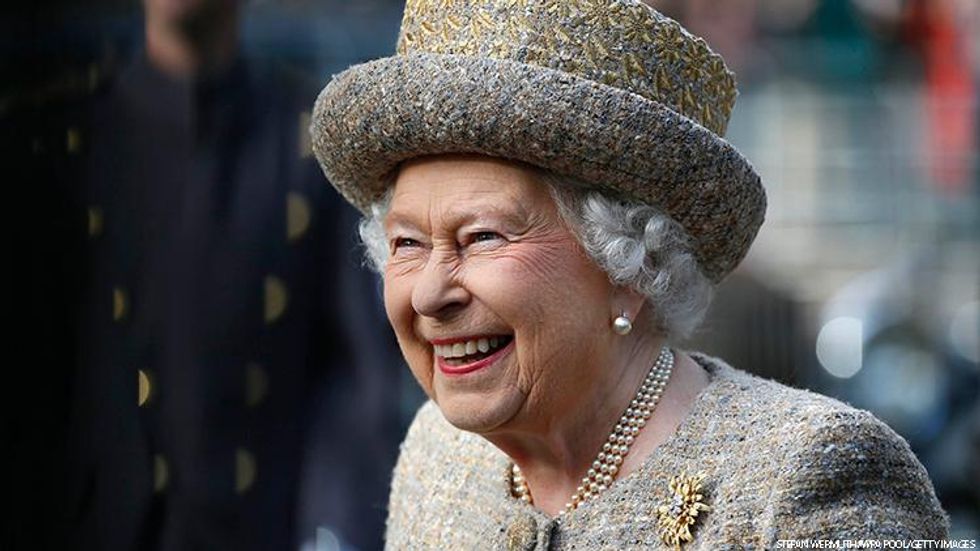
In her 2021 speech opening Parliament, the queen committed the government to banning conversion therapy, the discredited and harmful practice of trying to turn LGBTQ+ people straight or cisgender. "Measures will be brought forward to address racial and ethnic disparities and ban conversion therapy," she announced in the speech; the opening speech is traditionally written by the prime minister. Current plans by the British government would ban the use of conversion therapy on minors or adults without the client's "informed consent." The ban would only be for conversion therapy over sexual orientation, not gender identity, the BBC reports.